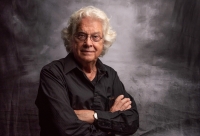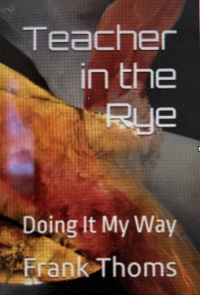Childhood: What it meant for me as a teacher
It was us, just us, no adults in sight. We argued, grappled occasionally, but worked it out. You get the picture.
But lauding that freedom doesn’t land today. It is not possible. Unimaginable. Parents are nervous. The world outside feels dangerous. Predators lurking. Threats of various kinds. Local TV, no longer local, broadcasts stories to grab attention: a kidnapping in Florida, a school shooting in Nebraska, a child at the bottom of a well in New Jersey, all delivered to your family in the living room. And the Internet amplifies such disturbances tenfold, usually on a phone or computer in a room alone.
Many wise commentators, Jonathan Haidt and Jean Twenge among them, have thoughtful ideas and approaches to lure teens away from their screens. (After Babel is a good site to learn of their wisdom.)
I sometimes visualize myself back in my 8th grade classroom, not then but today. What would I do? Who would I be? Would I do what I used to do or would I have to be different? In my last days in the classroom, the Internet was barely up and running. Access to porn was still inside Playboy and Hustler. Now not a click away on the Net, accidentally or on purpose. No apps calling and keeping my attention. No issues about gender. You can fill in the rest.
So what would I do? At the risk of being naive (despite forty years mingling in the lives of children) I would be who I was or who I believed I was. I was product of a free, inventive childhood. I had agency, be a creator. I carried that “childhood” into my classroom where I believed I could make it belong to me and my students. Where we could explore our minds and hearts,
Today, were I back in the classroom, I would still seek to have with conversation at the center, where I seek out my students’ thinking, where I listen, probe, invite, cajole, provoke, whatever it takes to let them know that they can have agency. I would learn ways to expunge mis- and disinformation pervading their screens. I would not have phones in the room (not in the school if possible), but I would become savvy about phones and set aside specific times to work with them on how to use their phones well on their own time. Mindless scrolling does not cut it. It instills passivity.
Humans are about community. We are not isolated creatures; only when we choose to be. But isolation today comes from outside forces that lure, particularly the young, to be alone. When phones are in their hands they are led to isolation, which leads to loneliness, mental health issues, and unfortunately to suicides.
A classroom is about relationships, or it should be. Good classrooms have always been like that whether in kindergarten or in university. Human connections make them work. I can only see myself continuing to make that a priority.
But when students arrive, I would have to go with the flow. Some with coffee, with phones (if allowed in school), and more from divorced homes, having ‘adult’ knowledge, unfounded information unavailable years ago, having parents suspicious of teachers and schools, coping with interfering politicians, and cantankerous anti-teacher school board meetings.
Perhaps someday, as the analogical world has been thoroughly replaced by the digital, there will be human society having no value for or knowledge of face-to-face life. Where chip placement in humans will dictate life. Until then, long after I will know, I see humans as extensions of creatures that once long ago sat around campfires and told stories, and having a freedom of movement, of activating their lives, just as I had in my childhood and in my classroom and teaching life.
In the end, the classroom would be as it was for me. When I close my door, it will be us and no other. Everyone counts, everyone belongs, everyone who they are. And I being myself for better or worse.

